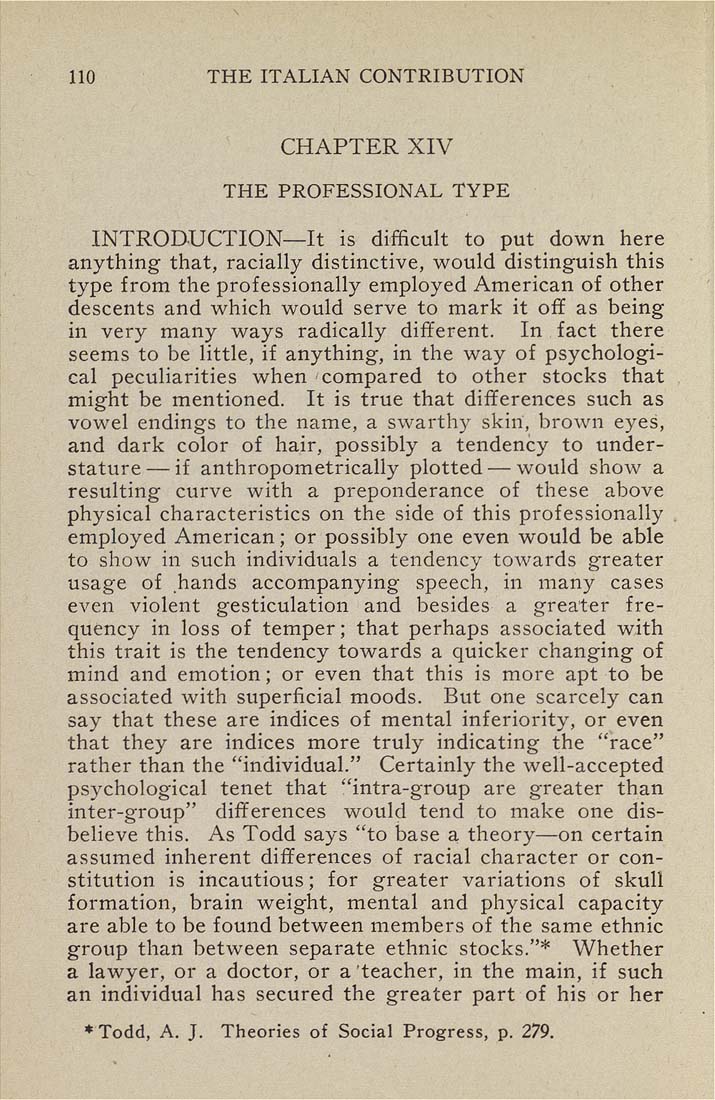THE ITALIAN CONTRIBUTION
CHAPTER XIV
THE PROFESSIONAL TYPE
INTROD-UCTION-It is difficult to put down here
anything that, racially distinctive, would distinguish this
type from the professionally employed American of other
descents and which would serve to mark it off as being
in very many ways radically different. In fact there
seems to be little, if anything, in the way of psychologi¬
cal peculiarities when compared to other stocks that
might be mentioned. It is true that differences such as
vowel endings to the name, a swarthy skin, brown eyes,
and dark color of hair, possibly a tendency to under-
stature — if anthropometrically plotted — would show a
resulting curve with a preponderance of these above
physical characteristics on the side of this professionally
employed American; or possibly one even would be able
to sliow in such individuals a tendency towards greater
usage of hands accompanying speech, in many cases
even violent gesticulation and besides a greater fre¬
quency in loss of temper; that perhaps associated with
this trait is the tendency towards a quicker changing of
mind and emotion; or even that this is more apt to be
associated with superficial moods. But one scarcely can
say that these are indices of mental inferiority, or even
that they are indices more truly indicating the "race"
rather than the "individual." Certainly the well-accepted
psycliological tenet that "intra-group are greater than
inter-group" differences would tend to make one dis¬
believe this. As Todd says "to base a theory—on certain
assumed inherent differences of racial character or con¬
stitution is incautious; for greater variations of skull
formation, brain weight, mental and physical capacity
are able to be found between members of the same ethnic
group tlian between separate ethnic stocks."* Whether
a lawyer, or a doctor, or a teacher, in the main, if such
an individual has secured the greater part of his or her
'Todd, A. J. Theories of Social Progress, p. 279.
|








